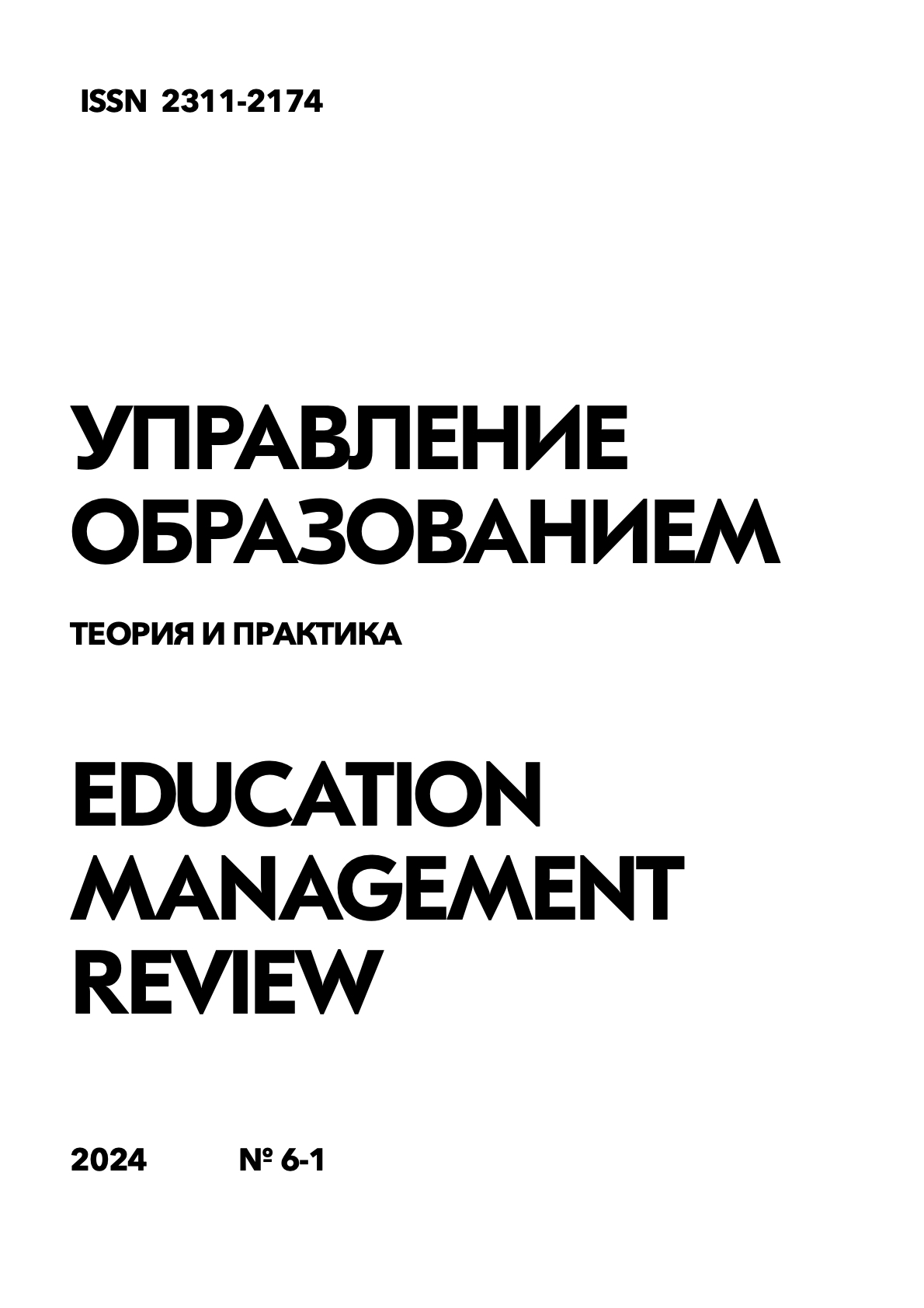Formation of a trend model of learning in technology clusters in Russia
Keywords:
technological cluster, trending learning model, integration of education and business, project training, STEAM competencies, engineering pedagogyAbstract
The formation of effective learning models in technological clusters is a key factor in the innovative development of Russia in the context of the formation of the knowledge economy. The purpose of the study is to develop and test a trend model of the educational process adapted to the specifics of Russian technoclusters. The study was based on a combination of quantitative and qualitative methods. Based on a cluster sample (n=120), a sociological survey of residents of technoparks in 8 regions of the Russian Federation was conducted. Qualitative data were obtained through a series of in-depth interviews (n=20) with experts in the field of engineering pedagogy and analysis of documents from 15 leading technology parks. It has been established that traditional training formats poorly meet the needs of high-tech companies of cluster residents. The key parameters of the trending educational model are identified: a project approach, collaboration between universities and businesses, integration of STEAM competencies. A set of measures for the implementation of the model in the practice of educational activities of technoparks is proposed. The results of the study provide grounds for reviewing the existing approaches to engineering education in the Russian Federation. Further development and scaling of the trend model will increase the effectiveness of training for innovation clusters and accelerate the technical development of the country.
References
Банникова Л.Н., Боронина Л.Н., Вишневский Ю.Р. Реализация новых моделей в подготовке инженеров-исследователей: социологический анализ // Высшее образование в России. 2016. № 11. С. 88-96.
Боровков А.И., Рябов Ю.А., Марусева В.М. Новая парадигма проектирования в высокотехнологичной промышленности // Инновации. 2021. № 8(274). С. 45-59.
Гохберг Л.М., Дитковский К.А., Кузнецова И.А. Индикаторы инновационной деятельности: 2021: стат. сб. М.: НИУ ВШЭ, 2021. 280 с.
Кавицкая И.Л., Дашкова А.К., Зиньковская С.М., Кирищиева И.Р. Трансформация инженерного образования: опыт международного сотрудничества // Высшее образование в России. 2021. Т. 30. № 7. С. 69-82.
Кондратьев В.В., Кузнецова М.Н. Модель проектно-ориентированного обучения в инженерном образовании // Высшее образование в России. 2020. Т. 29. № 1. С. 135-149.
Кузьминов Я.И., Песков Д.Н. Какое будущее ждет университеты // Вопросы образования. 2017. № 3. С. 202-233.
Унгер М., Полтерович В.М. Базовая модель развития инновационной экосистемы // Экономическая наука современной России. 2021. № 2(93). С. 7-27.
Чучалин А.И. Инженерное образование в эпоху индустриальной революции и цифровой экономики // Высшее образование в России. 2018. Т. 27. № 10. С. 47-62.
Etzkowitz H. The triple helix: university-industry-government innovation in action. NY; L.: Routledge, 2008. 180 p.
Crawley E.F., Malmqvist J., Ostlund S., Brodeur D.R., Edstrom K. Rethinking engineering education: The CDIO approach. 2nd ed. Cham: Springer, 2014. 311 p.
Khine M.S., Areepattamannil S. STEAM education: Theory and practice. Cham: Springer, 2019. 276 p.
Graham R. The global state of the art in engineering education. Cambridge: MIT School of Engineering, 2018. 170 p.
Goodhew P.J. Teaching Engineering: All you need to know about engineering education but were afraid to ask. Liverpool: UKCME, 2010. 171 p.
Shernoff D.J., Sinha S., Bressler D.M., Ginsburg L. Assessing teacher education and professional development needs for the implementation of integrated approaches to STEM education // International journal of STEM education. 2017. Vol. 4. № 1. pp. 1-16.
Wrigley C., Straker K. Design thinking pedagogy: the educational design ladder // Innovations in education and teaching international. 2017. Vol. 54. № 4. pp. 374-385.
Downloads
Published
How to Cite
Issue
Section
License

This work is licensed under a Creative Commons Attribution-NonCommercial-NoDerivatives 4.0 International License.




